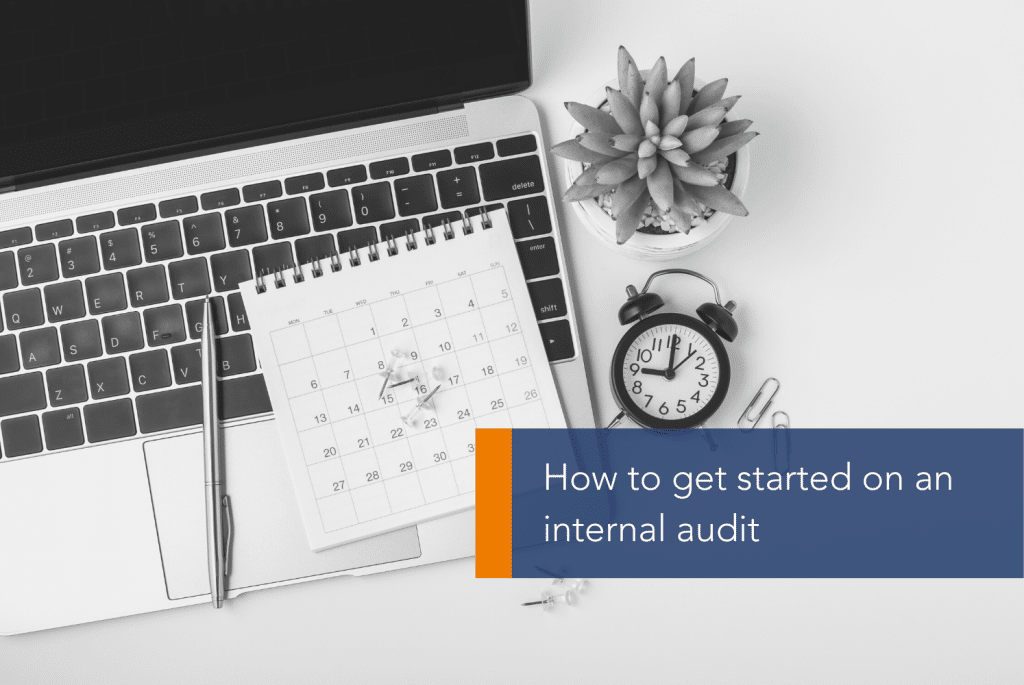
How to get started on an internal audit
July 3rd, 2023 By AmywrightInternal auditing is essential for business improvement, encompassing fraud protection, financial management, ISO certification, and overall organisational development. By undertaking regular internal audits, companies can proactively identify risks, enhance efficiency, and build a culture of continuous improvement. This blog will delve into the fundamental principles and best practices of internal auditing, providing actionable insights for anybody looking to start the process.
Understanding the connection between ISO certification and internal auditing
Internal auditing and ISO certification share a mutually beneficial relationship, complementing each other, but how exactly do they achieve this?
Internal auditing is critical in ensuring businesses comply with relevant industry standards. ISO certification provides the framework a company should implement to ensure compliance with internationally recognized standards. The two processes go together to ensure the organization meets the quality criterion it strives to achieve. ISO certification gives businesses a tangible display of quality that speaks volumes to customers and stakeholders.
The role of an internal auditor
An internal auditor’s role lies within their job’s name – to internal audit. However, this is an umbrella term, with their role being far broader than the name suggests. Internal auditors regularly get tasked with evaluating the effectiveness of a company’s operations, and to achieve this, they must identify risks and use best practice principles to provide sound recommendations for improvement. To begin with, an internal auditor would typically do the following:
- Understand the purpose and the scope: An internal audit would commence upon the foundation of the objectives behind it, achieved by determining the areas and processes needed to identify the goals you want to achieve.
- Develop an audit plan: Planning is imperative in deciding what you want to achieve and in what time frame. For example, standard adherence would be the overarching goal if you’re working toward ISO certification. An audit plan will typically serve as a road map to guide the overall process.
- Conduct a risk assessment: Identify potential risks and prioritize them based on their significance and potential impact. This process provides insight into the areas of focus for your audit.
- Collect information: Gather relevant data and documentation about the processes or areas under audit. This might include policies, procedures, financial records, performance reports, or other supporting documentation.
- Perform fieldwork: Auditors conduct on-site visits or interviews with relevant people to gain insight into the business’s processes.
Later in the process, the analysis, reporting, implementation, and monitoring stages would happen. Following the comprehensive analysis of the gathered findings, the auditor compiles a report demonstrating the audit’s outcomes. The focus shifts to the implementation stage when the report is finalized – this is where the auditor works with the company to develop and take actions based on the report’s recommendations, which are monitored over time.
Ensuring best practice
In analyzing processes and making recommendations, internal auditors must always make suggestions with best practices in mind. Internal auditors leverage their expertise and industry knowledge to evaluate a company’s process against industry benchmarks. Through meticulous analysis, internal auditors help companies streamline their operations, optimize their resources, and consistently uphold standards of excellence. This approach allows auditors to identify areas of improvement and propose practical solutions that align with the given ISO standard’s best practices.
Looking to further your internal auditing skills? IMSM provides specialized internal auditor training designed to sharpen expertise and help you maintain and build your achievements in the industry.

Contact Us
For a free Quotation or On-Site presentation by an ISO Specialist, contact us today!
IMSM Inc
1500 District Avenue
Burlington
Massachusetts
MA 01803
USA